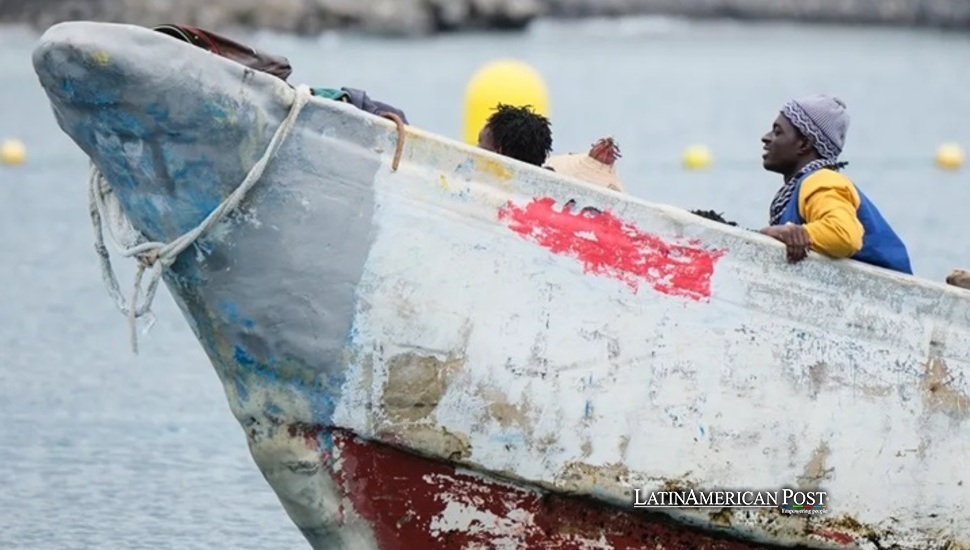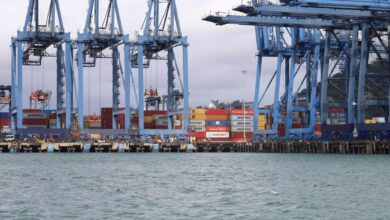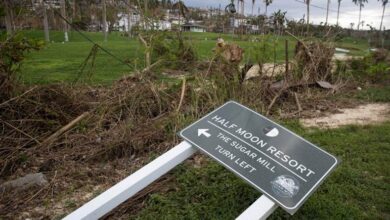One Love Jamaican Style Embrace of Immigration Policy

An emerging wave of compassion echoes across Jamaican shores, calling immigrants to rediscover their roots. This empathetic view toward returning migrants highlights Jamaica’s commitment to unity, growth, and shared responsibility, uniting Jamaicans worldwide for a brighter future.
A Homeland Beckons with Open Arms
Jamaica’s recent message to its nationals living in the United States reflects an impressive shift toward compassionate nation-building. At a time when many governments clam up and seal off their borders to migrants, Jamaican Prime Minister Andrew Holness has publicly declared that Jamaica embraces its diaspora, encouraging those under threat of deportation or facing adversity to return home on their terms. This is more than a simple political statement; it is a bold invitation for shared prosperity and forward-thinking growth.
Coming home under challenging circumstances is not always easy, especially for people whose hopes have been pinned on building stable lives abroad. Many immigrants risk leaving behind decades of hard work, dreams, and connections in their adopted lands. Yet Holness’s call is clear because it makes Jamaicans view the motherland as not a fallback but a real chance. He builds pride when he tells Jamaicans, “You’re not homeless, you’re not stateless,” urging them to return to a place they truly own.
This change in words—a homecoming message filled with care—is welcome worldwide. As immigration rules get stricter, it is good to see a leader who honors each nation’s right to control its borders yet welcomes his own people. His careful view sees how migration control works while stating the need to keep families together, save culture, and boost national progress.
Embracing an Empathetic Return
One of the most striking aspects of this invitation is the gentle way it’s framed. It is not harsh or reproachful; it does not shame Jamaicans for trying to find a better life elsewhere. Rather, it highlights the inclusive spirit that beats at the heart of Jamaican identity. Prime Minister Holness underscores that Jamaicans abroad should always seek to comply with local laws. Still, if they find themselves cornered by stringent immigration regulations, they must know that returning to Jamaica is not a defeat. Instead, it is an act of affirmation—an embrace of one’s heritage and a chance to keep moving forward.
Even more notable is the recognition of potential benefits to the homeland. By inviting Jamaicans to return to help build the country’s wealth, Holness supports the idea that the diaspora is a strong asset. Immigrants who spend time abroad gain new skills, fresh ideas, professional contacts, and advanced training in different sectors. When they return, they offer valuable experience that can boost innovation and add to local economic growth.
This caring approach does more than empty words. Its goal is to boost national pride, use the diaspora’s promise, and strengthen Jamaica. Such openness is rare when immigration debates split opinions. Nationalist views sometimes win over concern, causing divisions between those who leave and those who remain. In contrast, Holness’s view creates unity and removes barriers between “us” and “them.”
Building Bridges, Not Barriers
Holness’s invitation mirrors the view of Colombian President Gustavo Petro, who told undocumented Colombians in the U.S. to think about returning home with financial help as loans. That parallel underscores a growing phenomenon in Latin America and the Caribbean: leaders envisioning a future wherein their overseas population is not just an afterthought but an integral part of nation-building.
Critics might see this as a political maneuver—words meant to rally patriotic support without tangible follow-through. Yet the very act of publicly endorsing return migration marks a substantial ideological shift. At a time when host countries often treat the foreign-born with suspicion and hostility, hearing the motherland say, “Come back, you belong here,” can be a powerful balm. It disputes the view that deportation always brings people and their money to ruin. Jamaicans are urged to face change by deciding to come back as they wish, not by pressure.
The idea does not reduce the value of a life made overseas. People who have worked, studied, raised families, and made friends in the U.S. often feel they belong in their host country. Yet situations can change. Some might suddenly lose job security. Others may face immigration hurdles. For those people, the new Jamaican role helps. Their lives do not end with forced removal; it can open a new chance in Jamaica.
Renewed Hope and a Stronger Jamaica
Prime Minister Holness’s statement, “Don’t stay and suffer,” serves as a rallying cry to reclaim agency. His words reach a basic need for dignity, security, and choice. As he delivers this message, Jamaica seeks to protect the minds and feelings of its nationals, who might otherwise feel abandoned by changing immigration laws.
Holness’s call connects with Jamaica’s unity and care. The cultural philosophy of “One Love,” so often associated with Jamaica, is rooted in genuine compassion and a pursuit of collective prosperity. When a leader of Holness’s stature asks citizens to come home if and when the political tides turn against them abroad, it shows that compassion is not a luxury but a guiding principle of national policy. It seems a truth often ignored in immigration debates: people and their homelands stay linked, no matter the distance or time apart.
From an economic point of view, this forward stance urges returnees to use their business ideas and worldview in projects that help local communities. Imagine a Jamaican who has trained as a nurse in New York, an engineer in Miami, or a software developer in California. If that person finds themselves at a crossroads because of changing immigration regulations, returning to Jamaica means they can contribute fresh knowledge to national industries like healthcare, infrastructure, or technology. Each individual’s skill set, honed abroad, can become a critical building block toward modernizing local sectors.
The Prime Minister’s invitation creates a situation where Jamaican nationals living abroad might invest in Jamaica, irrespective of returning. Listening to a leader who welcomes them back builds a deep emotional bond. Even if some are not ready to move physically, they might still send remittances or invest in Jamaican real estate and business ventures with renewed confidence. That infusion of capital, expertise, and moral support can help the nation. Holness’s remark also has broader cultural weight. Many people in the diaspora feel a strong love for Jamaica, as shown in yearly family visits, money sent to relatives, and interest in Jamaican music, food, and traditions. By saying no Jamaican should feel homeless or stateless, Holness builds pride in national identity. This does not remove the difficulties some emigrants endured, but it does say that the country has grown and is ready to include them as partners in progress.
In praising this caring view, we see leadership that cares for its diaspora as much as its citizens at home. It accepts the challenges of immigration, the personal and work-related problems, and the emotional cost of leaving one’s life behind. More importantly, it gives hope and a respectful choice. Instead of facing forced departure under difficult conditions, Jamaicans can turn a potential crisis into a useful shift that reconnects them with their homeland.
In a world full of divisive talk, the Jamaican call to “Come back. Don’t stay and suffer” shows a clear difference. It transforms a painful moment—deportation or forced departure—into a time for strength, self-respect, and national pride. By choosing a path that respects both personal choice and common duty, Jamaica sets the stage for a kinder and future-focused discussion of immigration.
Empathy in leadership leads citizens to trust that working together and understanding win over fear and leaving people out. The Jamaican view shows that migration is not a zero-sum game where one nation’s gain means another’s loss. Rather, it is a dynamic process that can enrich both the individual and their homeland—provided that leaders have the vision to embrace, rather than shun, their people.
At a time when so much of the global conversation around immigration is driven by closing doors, Holness’s appeal reopens them, offering Jamaicans a homecoming steeped in solidarity, hope, and economic promise. This inclusive spirit may become a model for other countries that deal with their communities overseas. By building ties with its diaspora, Jamaica can earn cultural and economic benefits and shape a future that is more united, resourceful, and full of chance.
Holness’s message shows a truth many politicians ignore: one’s birthplace gives identity and pride, next to opportunity. No matter how far one goes, there must be a home to welcome them; personal goals can stay when rules change. Jamaica shows a strong message by choosing a caring path: caring for your diaspora is a moral and strategic duty.
Also Read: Trump’s Aid Freeze Halts Mexico’s Anti-Fentanyl Enforcement Programs
By giving empathy rather than blame and by choosing inclusion instead of separation, this new view on immigration deserves praise. It respects the right to seek success in other lands while keeping a tie to one’s roots. It urges Jamaicans to regain their feeling of belonging and dignity. Most of all, it shows that leaders can turn challenging global issues into chances for unity and growth. Through open arms and hearts, Jamaica stands poised to harness the power of its people—wherever they may roam—and guide them back home whenever they need a safe harbor.




